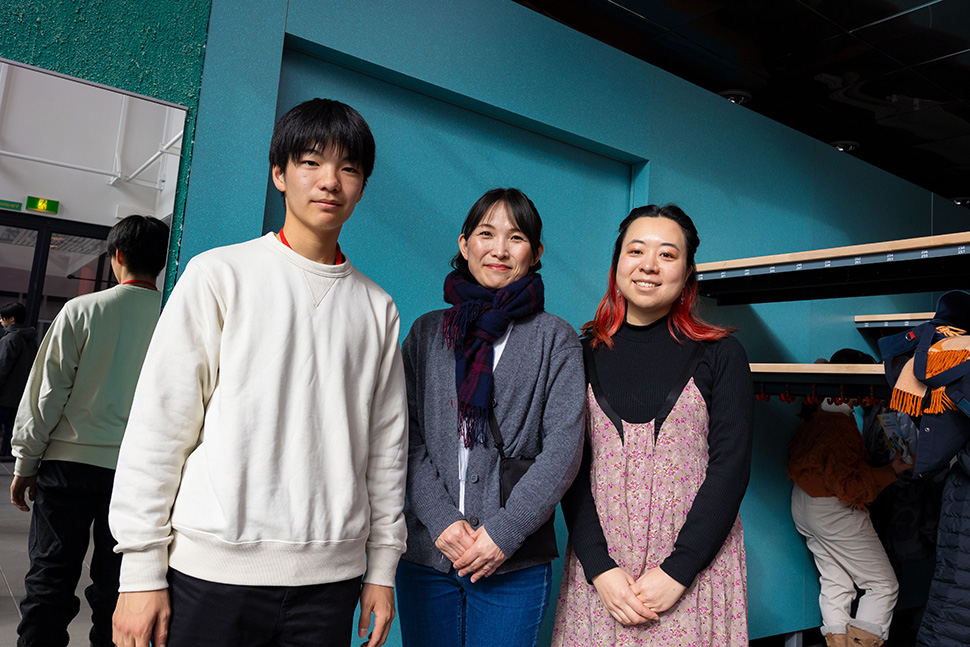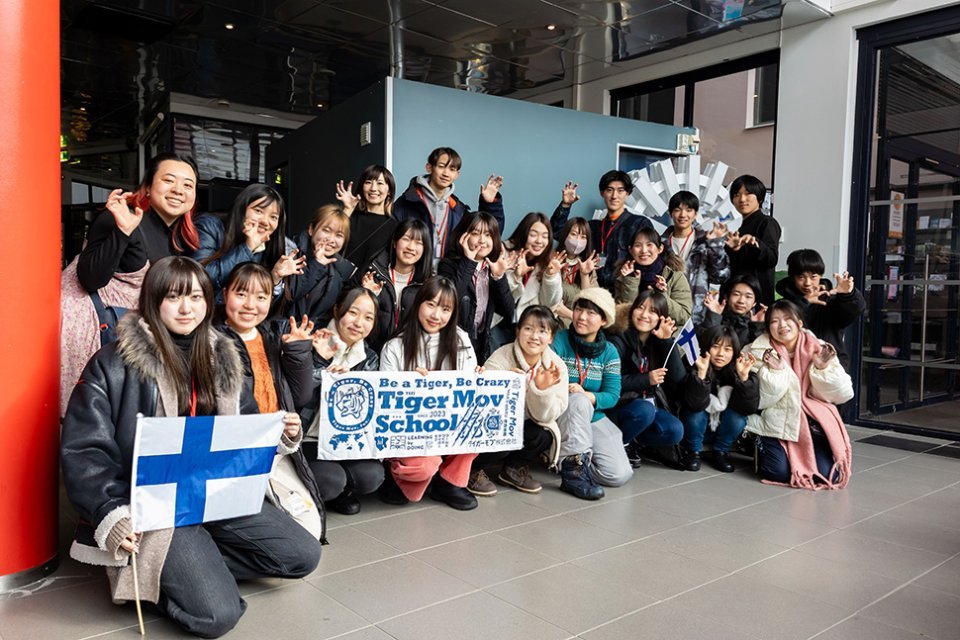A Japanese educational travel group visited Oulu in the end of March. During the trip they visited Finnish educational institutions, interviewed local people, and had the experience of a Finnish sauna.
A group of Japanese high school students and teachers got interested in Finland on the basis of the high-quality education system and the title of the happiest country in the world. They wanted to experience what Finland is like for themselves. For that, the main mission on the journey was to interview the local people of Oulu. The group also met Japanese people that are currently living in Oulu.
During their trip, the group visited several educational institutions, including a primary school, the Vocational School, and the University of Oulu. At Myllytulli school, they were presenting Japanese culture to the students through workshops. Workshop topics ranged from origami and sumo wrestling to anime and manga, calligraphy, traditional clothing, and the popular Japanese performance art known as so-ran bushi, which combines singing and dancing.
Yuki Nakayoshi explained and showed what kind of dance so-ran bushi is.
– The dance resembles fishermen pulling a rope when they are working. The lyrics of the song mean yelling hooray.
Finland is still known for its education
Even though Finland has not been at the first place in PISA points in recent years, globally it still has a reputation as the country of high-quality education. Yuta Iwasaki wanted to experience for herself why Finland is also considered the happiest country in the world.
– I teach English at high school, so I wanted to visit in Finnish schools and see what it is like in there in everyday life. I was excited to participate in this programme, and to ask local people questions face to face.
Iwasaki is interested in cultures and social structures. She considers having conversations with locals as important.
– I am very satisfied that the whole purpose of the journey is not just sightseeing. I can learn a lot more through communication and interaction.

Yuki Nakayoshi, Yuta Iwasaki, and Ayaka Miyashita want to explore cultures.
Finnish and Japanese cultures have differences as well as similarities
In addition to school visits and interviews, the trip also involved sightseeing and concretely getting to know Finnish culture. The group started their journey from Helsinki where they, for example, visited the Oodi library and walked on the seaside. When having arrived in Oulu, they spent the first day mostly exploring the city.
– We also went for a nature trip because we wished to experience the Finnish nature concretely. We participated in various snow activities, including a reindeer sleigh ride. We are also planning to go to sauna, said the programme coordinator Ayaka Miyashita during the trip.
– Tomorrow, we will visit the OSAO Vocational College and after that the university campus. We would like to know what student life is like here in comparison to Japan.
Nakayashi and Iwasaki think that Finns are good at finding happiness even from small things.
– Nature is one example, and family is another. Based on our interviews, Finnish people value time spent with their family and friends in a unique way. It is also normal in Japan, but here it is appreciated in a specific way.
They also wanted to mention high taxation, helpfulness, and respect in Finnish society. From Nakayashi’s perspective Finns know how to respect not only others but also themselves, whereas in Japan it is more common to diminish oneself. Miyashita, who has been working in Finland for three years as a teacher, shared her personal experiences about the school systems of both countries. She emphasised the importance of recognising the strengths and weaknesses of each system and learning from one another.
– For me, coming to Finland was eye-opening. I understood that in Japan there are also good things existing. I hope these students will also realise it. By planting the seed of this idea during their time here, they can carry it back to Japan and implement the good practices they learned here in Japanese schools.
What does educational travel mean?
There have been groups visiting Oulu almost every week during this year.
The visitors come from all over the world.
The visits have different themes, for example the Finnish education system, multi-professional collaboration, sustainability, and STEAM pedagogy.
The programmes of the visits might also consist of school or kindergarten visits or talks given by, and conversations had with specialists.
The groups pay for the visits.


